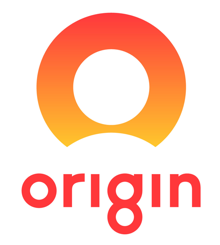Note: The contents of this article are currently under review. Please check back soon for updated information.
In this Canstar Blue guide, we explain what carbon neutral energy is and how it works. We also share a list of the retailers who offer these kind of products in the Australian energy market.
Aussies are becoming increasingly environmentally conscious, leading many of us to look for simple ways to reduce our carbon footprint. A number of electricity retailers have stepped up to the plate to offer ‘carbon neutral’ or ‘carbon offset’ energy. But what is it, who offers it and what does it cost? This article covers the answers to these questions and more.
On this page:
What is carbon neutral energy?
Carbon neutral energy involves offsetting the carbon emissions produced from a customer’s electricity usage. Carbon neutral electricity is not the same as renewable energy. In fact, since a variety of different generators export to the electricity grid, it is physically impossible for retailers to deliver pure renewable electricity to your home or business through the grid. Instead, the retailers provide ‘carbon neutral electricity plans’ by purchasing carbon offset units or emission reduction certificates equivalent to the emissions from your home’s energy usage.
The certificates are purchased from certified sustainability groups across the globe and support a range of emissions-reduction projects. This can include anything from renewable power developments to land management and tree planting. Keep in mind that carbon neutral electricity reduces global emissions. If you’re looking to support Australia’s own renewable energy sector, it might be better to sign up to GreenPower.
Who offers carbon neutral energy?
Only a handful of electricity retailers offer carbon neutral products, however the growing interest in carbon offset energy could see other retailers follow suit. Currently, the likes of Nectr, Energy Locals and Simply Energy are the leading providers in this area. The plans below offer some kind of carbon offset option to customers. Please note however, that the prices and percentage of carbon offsets (e.g. 10%, 100%) for these programs may vary from retailer to retailer. It is best to check with the retailer directly though to ensure your power is being offset as some retailers may require you to opt in.
Here are some of the cheapest published deals from the retailers on our database that have a carbon offset option available. These are products from referral partners†. These costs are based on the Ausgrid network in Sydney but prices may vary depending on your circumstances. This comparison assumes general energy usage of 3900kWh/year for a residential customer on a single rate tariff. Please use our comparison tool for a specific comparison in your area. Our database may not cover all deals in your area. As always, check all details of any plan directly with the retailer before making a purchase decision. The cost of carbon neutral programs may vary from retailer to retailer.
Here are some of the cheapest published deals from the retailers on our database that have a carbon offset option available. These are products from referral partners†. These costs are based on the Citipower network in Melbourne but prices may vary depending on your circumstances. This comparison assumes general energy usage of 4000kWh/year for a residential customer on a single rate tariff. Please use our comparison tool for a specific comparison in your area. Our database may not cover all deals in your area. As always, check all details of any plan directly with the retailer before making a purchase decision. The cost of carbon neutral programs may vary from retailer to retailer.
Here are some of the cheapest published deals from the retailers on our database that have a carbon offset option available. These are products from referral partners†. These costs are based on the Energex network in Brisbane but prices may vary depending on your circumstances. This comparison assumes general energy usage of 4600kWh/year for a residential customer on a single rate tariff. Please use our comparison tool for a specific comparison in your area. Our database may not cover all deals in your area. As always, check all details of any plan directly with the retailer before making a purchase decision. The cost of carbon neutral programs may vary from retailer to retailer.
Here are some of the cheapest published deals from the retailers on our database that have a carbon offset option available. These are products from referral partners†. These costs are based on the SA Power network in Adelaide but prices may vary depending on your circumstances. This comparison assumes general energy usage of 4000kWh/year for a residential customer on a single rate tariff. Please use our comparison tool for a specific comparison in your area. Our database may not cover all deals in your area. As always, check all details of any plan directly with the retailer before making a purchase decision. The cost of carbon neutral programs may vary from retailer to retailer.
Energy Locals Carbon Offsets
Energy Locals claims to carbon offset 100% of the electricity usage of all its retail and business members through the purchase and surrender of carbon credits. Energy Locals does not explicitly state where its carbon credits are purchased from, however its website cites them as ‘international carbon credits’.
AGL Carbon Neutral Opt-In
 AGL may be Australia’s largest carbon emitter, but the energy giant is trying to change its ways. AGL has an initiative that includes a product that’s certified as Climate Active Carbon Neutral. This is an opt-in program whereby customers pay $1 per week to have their home’s carbon emissions offset through emissions reduction projects. Currently, the energy retailer is supporting a native forest regeneration program in NSW and a Kenyan initiative that provides communities with energy efficient stoves. For an additional 50c a week, customers can also have their gas usage offset.
AGL may be Australia’s largest carbon emitter, but the energy giant is trying to change its ways. AGL has an initiative that includes a product that’s certified as Climate Active Carbon Neutral. This is an opt-in program whereby customers pay $1 per week to have their home’s carbon emissions offset through emissions reduction projects. Currently, the energy retailer is supporting a native forest regeneration program in NSW and a Kenyan initiative that provides communities with energy efficient stoves. For an additional 50c a week, customers can also have their gas usage offset.
Engie

Engie, formerly known as Simply Energy, offers carbon neutral options on all plans. Engie will offset the emissions of its customers’ energy usage, with the company matching their emissions with the purchase of certificates from energy generation projects that absorb or abate the production of CO2. Certificates are claimed to be sourced from activities that meet the Climate Active Carbon Neutral Standard’s offset eligibility criteria. Customers are not required to opt-in to receive this.
Nectr 100% Clean
Nectr offers both low rates and carbon offsets on all of its market offer energy plans. Its 100% Clean plan includes an opt-in product that’s certified Climate Active Carbon Neutral, thanks to its buying of carbon offset certificates/units from both local and international projects. According to its website, some of these projects include a hydropower development in India, wind farm project in Honduras, and the design and development of a hydroelectric plant in Turkey.
Powershop Carbon Offset Electricity
![]()
Powershop offsets the carbon emissions associated with customers’ electricity production on the Power Offset plan. It does this by purchasing carbon offset units that meet the eligibility requirements of the government’s Climate Active Carbon Neutral Standard. Customers interested in carbon offset electricity with Powershop will need to sign up to the Power Offset plan in order to opt-in.
GloBird Energy ‘GloGreen’

Australian-owned retailer GloBird Energy, offsets emissions for customers on its latest product ‘GloGreen’. This electricity plan is claimed by the retailer to be 100% carbon neutral and is targeted as a ‘guilt-free’ energy option. GloBird Energy also offers a carbon neutral natural gas deal under this product title. According to the GloBird Energy website, the retailer offsets customers’ emissions by purchasing the following: Certified Emissions Reduction (CERs) certificates, Verified Emission Reductions (VERs), Verified Carbon Units (VCUs) and Australian Carbon Credit Units (ACCU).
Origin Go Zero

Origin Energy purchases carbon offsets for its electricity and gas customers, through its Go Zero programs. These programs contain products that are certified Climate Active Carbon Neutral and come at an additional cost of $1.50 per week for electricity customers and $1.00 per week for natural gas customers. Origin purchases carbon offsets for its LPG customers too, for an additional cost. These costs, however, are based on the size of the LPG bottle or refill order.
Arcline by RACV Carbon Offset Energy
![]()
Arcline by RACV purchases and surrenders carbon emission units on behalf of its customers through Certified Emission Reductions (CERs), recognised under the National Carbon Offset Standard (NCOS). According to its website, Arcline by RACV purchases units equal to the total energy it anticipates its customers to use each year, in advance. However, it does state that it purchases additional certificates if its customer use more energy than forecasted. Please note, Arcline by RACV currently only services customers in Victoria.
Alinta Energy Carbon Balance

Alinta Energy purchases carbon offsets for customers’ emissions through its new Carbon Balance product. These offsets are eligible under the Climate Active Carbon Neutral Standard. Alinta Energy claims that all the projects it supports through this program are Australian-based.
Providers who have withdrawn carbon neutral options
EnergyAustralia Carbon Neutral Electricity
EnergyAustralia previously allowed residential electricity customers opt into its ‘Go Neutral’ product, which saw carbon emissions fully offset through the purchase of carbon offset units. These units met the eligibility requirements of the government’s Climate Active Carbon Neutral Standard. However, as of February 2024 this product is no longer available to new customers.
Does it cost extra to offset my emissions?
While some retailers may charge a small fee to offset your carbon – such as AGL and Origin Energy – most customers with EnergyAustralia and Energy Locals are not charged a premium for carbon neutral electricity. That said, the money for carbon certificates has to come from somewhere, so it’s possible these costs are recouped through standard usage rates and supply charges. Eligible customers signed up with one of these retailers should have their carbon emissions offset automatically, but you should check to confirm this.
The difference between GreenPower and Carbon Neutral Electricity
Carbon neutral electricity is not the only way customers can reduce their carbon footprint. Almost all retailers offer what’s called ‘GreenPower’ – a government-led initiative that allows customers to directly contribute to Australia’s renewable energy sector.
Once again, it is physically impossible for retailers to deliver renewable electricity straight to your home. Instead, customers that sign up to GreenPower will have some or all of their electricity use offset by their retailer with electricity purchases from accredited renewable generators. Unlike carbon neutral electricity, which invests in programs across the globe to offset the emissions caused by customers’ electricity usage, GreenPower directly invests in Australian solar, hydro and wind power generators.
Customers can opt to have anything from 10% to 100% of their electricity usage covered by GreenPower. Unlike many carbon neutral programs however, customers are charged an additional fee for GreenPower. Generally speaking, customers that have a small portion of their bill covered by GreenPower – around 10% to 20% – pay a small fixed fee of one to two dollars per week. Most other GreenPower customers will instead pay a rate of five to eight cents per kWh on top of standard electricity charges. As you have probably put together, this means that GreenPower can get pretty expensive. For this reason, those looking to reduce their carbon footprint on a budget would likely be better off on a carbon neutral program rather than GreenPower. Of course, there’s nothing stopping you from signing up to both carbon offset electricity and GreenPower if you really wanted, provided your retailer offers both options.
Keen to learn more about how you can go greener with your energy usage? Check out our top three tips for going green in our energy checklist now.
Original reporting by Kelseigh Wrigley
Image Source: Black Salmon/Shutterstock





Share this article